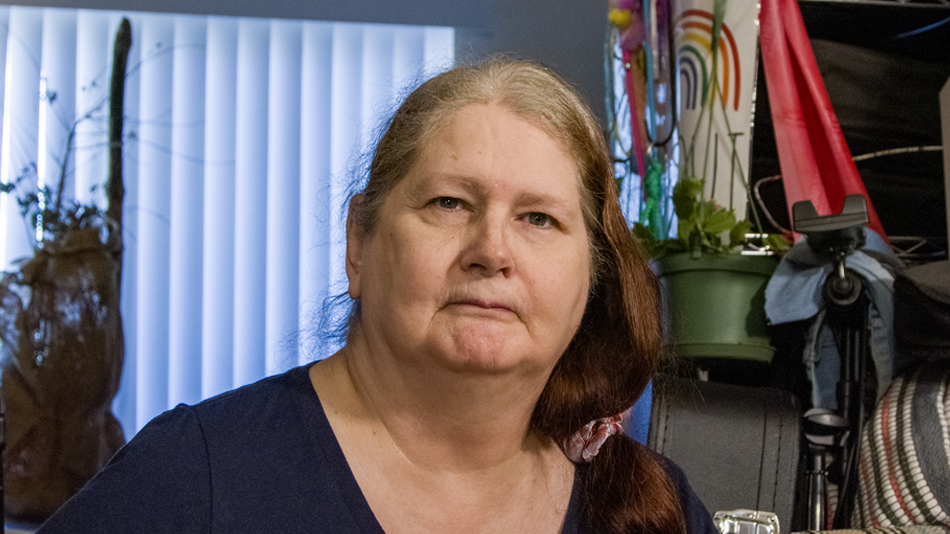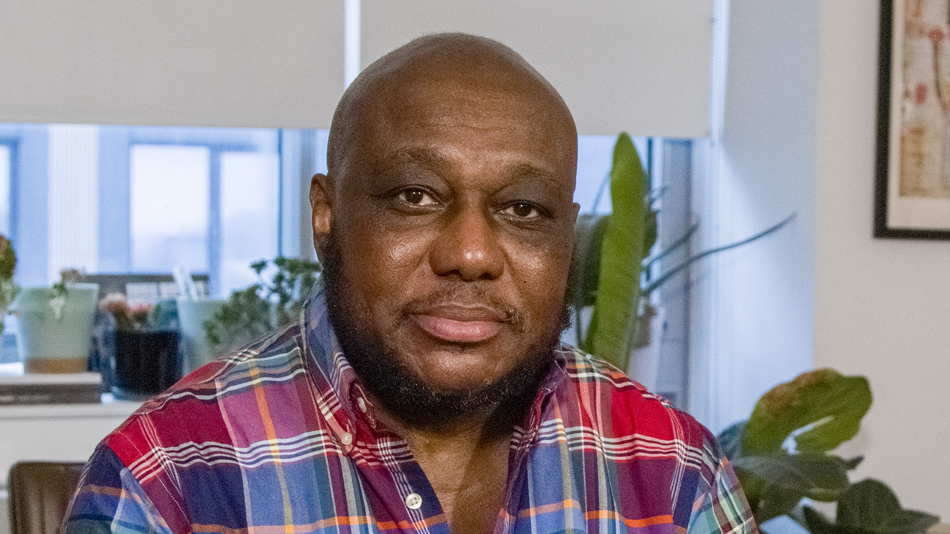My name is Teo Drake, I actually grew up in Connecticut, near New Haven.
The story basically is this intersection or this way of looking at my struggle around gender identity and the way in which that level of sort of struggle and shame impacted my risk for HIV and my ultimate testing HIV positive.
I had kind of found my place in this butch dyke world because I looked at myself and looked at them and they looked at me and we all looked alike and they were like, “You’re just a butch dyke” and I was like, “Okay.” Because I didn’t know anything else. And I’m grateful because it was a place I could stay safe for as long as I could and I could at least have my gender expression be relatively close to what I could have chosen it to be.
And I did that for a while and around age 28 I had gotten involved with a woman who was struggling herself and I had gotten into a relationship that was physically violent and like most abusers they are able to figure out out exactly what is your point of pain, and my gender was the thing you could go after to shatter my core, and that’s one of the things she did. So here was this woman who was HIV+ and it didn’t occur to me that I could say no, it didn’t occur to me that I could ask for protection, it didn’t occur to me that there were certain things I could not do. But at the same time I couldn’t envision a future so it didn’t matter. So I ended up having these symptoms all of a sudden in 1995 where I had all these childhood diseases, I had head and foot and mouth disease, I had strep throat, I had all these things I can’t even remember at this point, but they all happened within 30 days of each other. I knew, I was smart enough to know what the symptoms of seroconversion were, so I went to the public health department and said, I need to get tested. They were like, it doesn’t happen, you’re not one of those people at risk, so I went home. And I went back, and I was like this isn’t okay. And finally I refused to leave until I got tested. I was like, someone is drawing my blood today, it’s either going to be you or me. But I need to be tested. So I got tested, they drew my blood, and so I came back in another week. And I got called into an office. And I knew. I knew something just didn’t feel right. And in front of me was this doctor I had never met. It wasn’t the nurse who did the intake to draw my blood before. And she never looked at me, she looked at the paperwork and said your test came back positive, what you told us couldn’t have been true of what your risk factors were. And I remember thinking, it was all of a sudden like she was a football field away. And I couldn’t even hear what she was saying. And I left, I left without resources, I left without a connection to a doctor I just left. Not on my own accord, they just kind of sent me out the door. So I went home, I didn’t tell anyone, I didn’t tell my closest friends, I didn’t call my parents. If I had been diagnosed with cancer, I would have called. There wouldn’t have been this thing that I did something wrong. I didn’t tell anyone for a while. And I didn’t see a doctor, I didn’t do anything. I rapidly went from being HIV positive to an AIDS diagnosis and 33 t-cells and my viral load off the charts, it was unmeasurable. And I couldn’t tolerate the medication, and I had no will to tolerate the medication. Tolerating side effects means you have to want to tolerate the side effects. And I just couldn’t imagine myself as an old woman so why would I bother. And I was quickly getting ready to die, I thought that was what was going to happen. And I think I just got angry enough that I was like, I’ll be damned if I’m going to die this way and I’ll be damned if I’m going to be buried a girl. So I chose to begin the process of gender transition. I had a great therapist who kind of kept reminding me that that was on the table even when I ran from it. And in 2002 I started testosterone. And as I started to transition and the testosterone took its effect and I started to look like myself and the world started to not be so difficult for me to navigate, there became these places of ease. And in those places of ease, there became a lot of sadness and poignancy. There was joy and at the same time I was fully aware of everything I lost. And I was able to I think figure some way to live with that both and in the same way that my experience of living with AIDS has been. I get to figure out how to have a future and understand that I may not live to see it. I’m not one of those people living with HIV whose like, I’m going to be fine, I’m going to survive this. And I’m not one of those people living with HIV whose like, it’s hopeless, it’s useless. I have figured out some spiritual way to live with both and that two competing things can be true at the same time. And that was true I think with my gender experience of sort of walking out the door and being like, now finally I get to be me.








Share